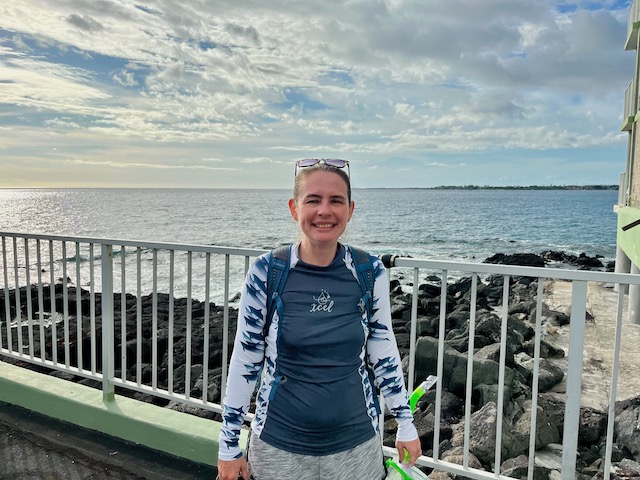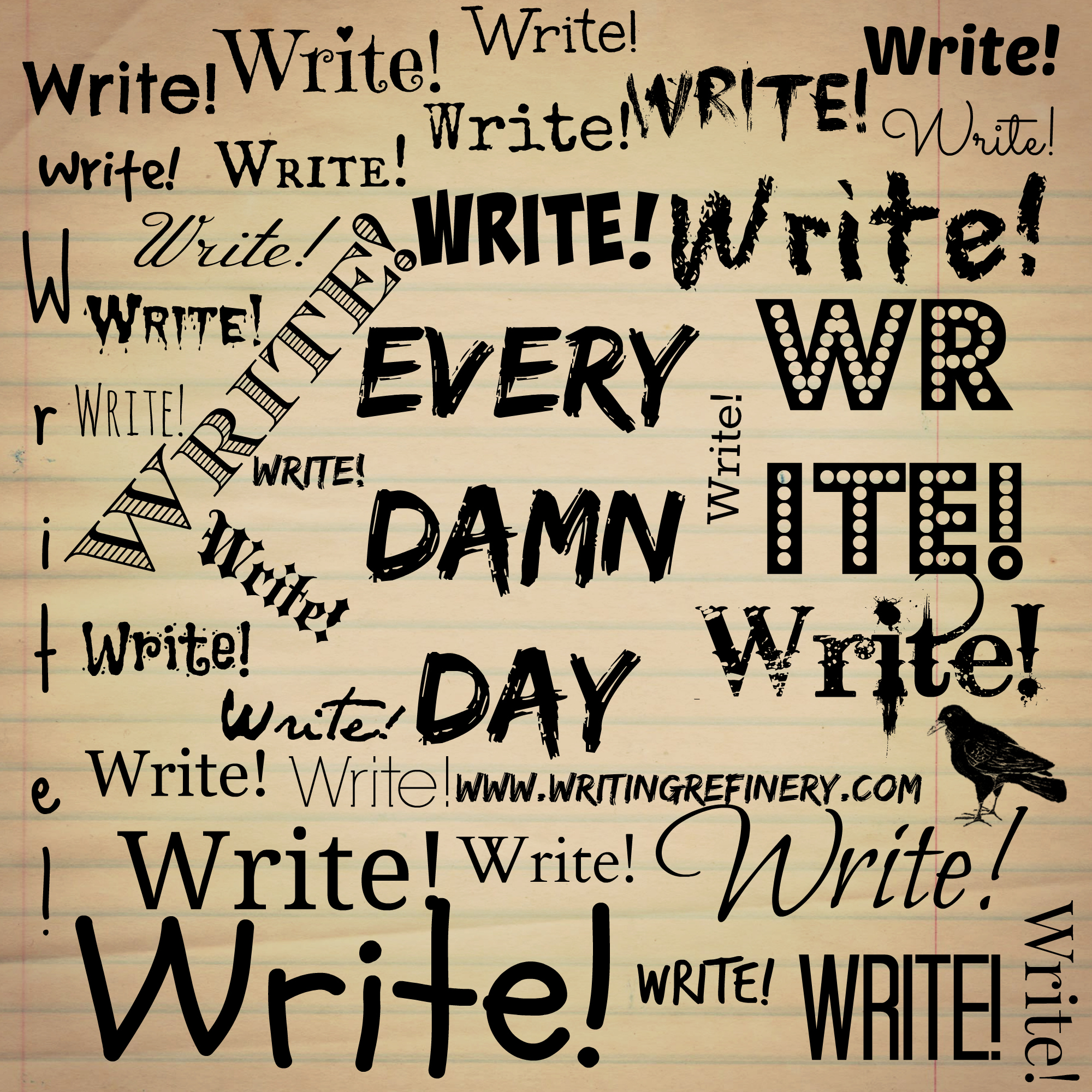
Posts don’t usually have dedications, but if they did, this one would be dedicated thus:
For little Elisabeth, who wanted to be a marine biologist.
Ok y’all. It’s story time, and I promise I’ll tie it all to creativity and writing eventually.
I just wrapped up a vacation to beautiful Hawaii. It’s my husband’s and my twentieth anniversary, and we decided to celebrate with a trip to our favorite state. It’s beautiful there, warm and humid. I swam in the ocean nearly every day (saltwater therapy) and spent time every morning working on my novel. I have a deadline coming up, a promise to critique partners to finish the book finally, and I have a hard time taking time for my own creative work. Can I get an amen?
It was satisfyingly generative, the morning time I set aside. I’m loving my book, and loving the characters and the challenges they’re up against. I’m making steady progress and growing in confidence with each scene I finish revising. And I’m promising myself I will hold space to get more revising done now that I’m back home.
Anyhow, among other activities, when we were planning our trip I had talked to Noah about maybe doing a manta ray snorkel, but… he’s not big on snorkeling… and I can get seasick occasionally, but most importantly, I am scared to death of the dark water (and you go after dark to see the manta rays). I actually blame my dad for my fear of dark water… and sharks… we saw Jaws 3-D in the theater when I was three years old. That messes with a kid’s head, know what I’m saying? So initially I had decided not to go on the manta ray snorkel trip. But… MANTAS!
See, despite being prone to seasickness and terrified of a great white shark attacking me (in the deep end of the swimming pool as a child, or in any water I couldn’t see through for most of my life), I love ocean life! I wrote and illustrated my first “book” when I was in the third grade about dolphins, and how they are NOT FISH. For a long time little Elisabeth wanted to be a marine biologist, and a dolphin trainer, and have a pet dolphin like Flipper. I am a still frequenter of aquariums and can spend hours staring out at the ocean, pondering the life that exists beneath the waves and straining for a glimpse of dolphins or whales. My current novel is about selkies, mythical oceanic creatures who can take human form and live on land, and I have a selkie short story coming out with Wyldblood Magazine this fall.
Facing Fears
I decided one night that even if Noah didn’t want to go snorkeling with mantas maybe I really did want to do it and that I’d go by myself. So I signed up to go the next evening. Except I was super scared. Like… had a panic attack about it after I signed up and barely slept that night scared… because sharks… and darkness… and seasickness… and doing it alone…
I have all these stories about myself. Stories about who I am, about what I can do, about what I am allowed to do. Maybe you do too? Can you think of some? Some of those stories are true. But some of them—that probably served a purpose at one point to protect us from some perceived danger, real or imaginary—some of them are outdated.
If we don’t take stock, and really question those stories we tell ourselves… we can end up holding ourselves back from things we really want to do! (Like publish a book, or sell a short story, or… swim with manta rays) We have to rewrite old stories in order to find what’s true now.
So I was struggling with fear and stories that said that because of those things I was afraid of I wouldn’t/couldn’t/shouldn’t do the thing I wanted to do. But I really wanted to see the manta rays! And I had signed up! For a while I was just frozen with fear at the foolishness that had caused me to make such a choice. I still had time to back out (technically… I couldn’t get a refund, so the money wouldn’t be wasted, but that’s beside the point).
When I went by the dive shop to check in before going to the harbor, I did the vulnerable thing and voiced my fear to the person behind the counter. They, and the snorkel guide later, reassured me that I would be well taken care of, that my fears were understandable but that the likelihood of sharks or drifting off into the darkness were really low… and I reminded myself that I had tools at my disposal to help with seasickness (non-drowsy Dramamine with ginger FTW, y’all).
That discussion didn’t magically make the fear disappear, y’all. But it gave me the space to see that I had options on this path to what I wanted to do. I told myself I’d just go down to the boat and see how I felt, and if I was too scared I wouldn’t go… that I’d just take the boat ride and if I was too scared to get in the water I wouldn’t do it… but y’all… I did it! I went by myself… and I snorkeled… and a manta ray brushed my hand as it barrel rolled past the board we were holding on to… and I didn’t get even a little bit seasick! It was quite possibly in my top ten life experiences… up there with swimming with the dolphins last time we were here.
If I hadn’t been willing to see past the stories I’d told myself about what I can and can’t do I would have missed out on one of the most beautiful experiences I’ve been privileged to participate in.
Sometimes to get to what we want, we have to be brave. We have to say “I will not allow my fear to hold me back.” And then we have to do the vulnerable thing and reach out, to receive support and help to do the thing, and to see that we’re not alone.
Rewriting Old Stories
Whether it’s that short story you’re writing, that book you have wanted to publish for so long, or that creative writing practice you’re hoping to kindle for yourself (daily journaling or blogging or something similar), there’s probably an inner story you have to combat about why you’re not going to be able to do it.
The first step to overcoming it, to being able to rewrite that old story, is to figure out what it is, who told you that story the first time it appeared, and what it’s trying to protect you from. Bet you didn’t realize writing was going to involve so much therapy when you first started out, did you?
Then the next step, and I really do think this is key, is telling someone else about it, speaking up and being vulnerable. Discovering that the story you have about yourself is similar, if not identical, to the story someone else has about themselves is empowering! It’s not just you.
After that, pick one small first step you can take toward achieving your goal. And then another, and another. Make sure you know where your bail points are, those moments where you can walk away with minimal damage to yourself. And remind yourself that “bailing is not failing.” It’s all part of the process. Sometimes you’ll bail a hundred times or more before you succeed. It just depends on how big the fear, how deeply the story has rooted itself in your psyche.
Whether or not you succeed today, I hope that you begin to see that it’s possible to face your fears and rewrite old stories, to be brave and achieve your goals. If you need support to do that, please reach out. I’d love to cheer you on and help you find the tools you need to make your writing dreams reality.




 Write every day. It’s something they tell you to do if you want to be a writer. And it seems like both an easily achievable and a hopelessly insurmountable task all at once.
Write every day. It’s something they tell you to do if you want to be a writer. And it seems like both an easily achievable and a hopelessly insurmountable task all at once.
